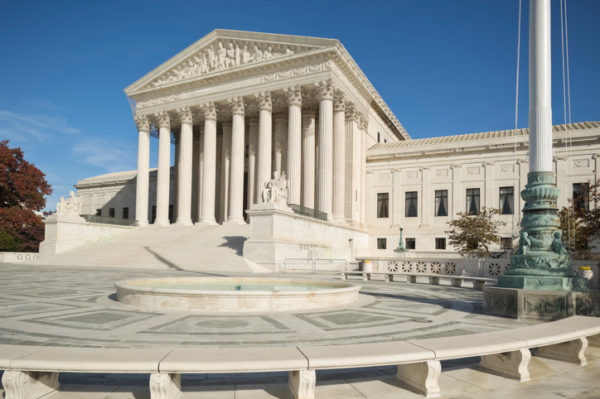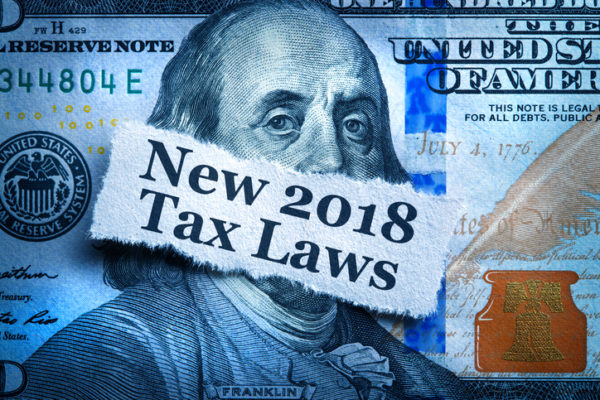Online shopping has progressed quickly from a unique buying experience. And it has become an almost daily activity in American family life. Few would dispute that online business has completely changed the way the landscape of our national economy.
Online Shopping Shapes the Power of the Internet and Vice Versa

Online or in Life, Decisions Stand Strong When the U.S. Supreme Court Presides.
Everybody is online today. Accounting Today reports, “In 1992, less than 2% of Americans had internet access, compared to about 89% today.” In last week’s landmark decision regarding state taxes, Justice Kennedy recently wrote, “The internet’s prevalence and power have changed the dynamics of the national economy,”
The Court’s Concern: State and Local Tax Revenue Lost from Online Shoppers and Business
Over recent years, this powerful new way to buy goods and services delighted consumers. And it brought about a boom in profits for online businesses. In fact, “Last year, e-commerce sales totaled $452 billion.” This represented “approximately 9% of all retail sales.” So, can you guess who online shopping was hurting?
Here’s the pain behind the bargains consumers were enjoying. State and local governments were unable to collect taxes on those sales. “In a federal report to Congress released last year, it was estimated that state and local governments were missing out on $8 to $13 billion in tax revenue because they could not collect sales tax from online retailers.”
A Look at the Back-Story of Online Business and Taxation
In this blog, AP Accounting spotlights last week’s supreme court taxation decision. This decision could affect online shopping, consumers, and businesses in a big way. Let’s start with a little history. Then we can better understand the new ruling by the Supreme Court.
1. The Quill Decision:
Since 1992 the U.S. Supreme Court’s has set the standard “for whether a state can require an out-of-state retailer to collect and remit sales tax” as a physical presence in the state.
In other words, in order for the state to tax sales, a seller had to “have property, people or some other physical connection with a state…”
2. Many States’ Response:
Yes, “many states impose “use” taxes that require the in-state purchaser to pay tax on taxable items on which no sales tax was paid.” However, consumers seldom have complied with these taxes.
Then, the health of the digital economy improved and expanded. And states began to realize they were losing out on big revenues. The “Quill” law associated with physical presence prevented a collection of tax revenues from online sales.
A 21st Century Definition of Physical Presence for Large Online Businesses

What Would Franklin Think of Online Shopping and Sales Taxes?
3. States began to ask if there couldn’t be a “click-through” nexus that was just as powerful as a physical presence. Moreover, Justice Kennedy in Direct Marketing v. Brohl, stated, “There is a powerful case to be made that a retailer doing extensive business within a state has a sufficiently ‘substantial nexus’ to justify imposing some minor tax-collection duty, even if that business is done through mail or the Internet.”
4. He urged the court to revisit the “physical presence” standard. He contended that “The Internet has caused far-reaching systematic and structural changes in the economy, and … it is unwise to delay any longer a reconsideration of the Court’s holding in Quill.”
5. Likewise, Justice Neil Gorsuch condemned the old Quill stance, stating that “physical presence rule as an “analytical oddity” that “seems deliberately designed” to be overturned.
Fast-forward in Time to the 2016 Case Just Decided:
Now, let’s examine the recent challenge to Quill and the landmark case from last week, South Dakota v. Wayfair. Basically, the court needed to examine the constitutionality of a South Dakota economic nexus law. The state had to defend herself from the massive revenue losses from online businesses.
Thus, South Dakota imposed “sales tax collection and remittance requirements on out-of-state sellers delivering more than $100,000 of goods or services into South Dakota.”… And they added, “or engaging in 200 or more separate transactions for the delivery of goods or services into South Dakota.” By the way, South Dakota shaped this law upon a model economic nexus law from the National Conference of State Legislatures.
South Dakota Legislature Declared Emergency
The South Dakota legislature declared this law as an emergency declaration. It was designed to “prevent erosion of the South Dakota tax base. You see, South Dakota does not have a state income tax, so they use both sales and “use” taxation to simply maintain essential state services.
South Dakota saw three big offenders against this law. And when you see the list, you will understand we are not dealing with petty amounts of cash. The offending online retailers were: Wayfair, Newegg, and Overstock.The state enforced their law by filing a declaratory judgment action against all three. As you probably realize, these businesses are online retailers.
And they had no physical presence in the state. Because of the previously explained Quill law, you might have guessed, the state courts always found in favor of the retailers in this and similar cases. South Dakota went to the top and appealed last week to the U.S. Supreme Court.
The New U.S. Supreme Court Decision
To make a long story short, South Dakota won, in essence. “The U.S. Supreme Court overturned the physical presence standard espoused in Quill v. North Dakota and National Bellas Hess v. Department of Revenue of Ill.” However, now individual states will have to adjust many of their local rulings involving taxation of Internet commerce.
According to the experts, changes are “likely to be especially pronounced in the handful of states that have taken the position that physical presence is necessary for the state to assert corporate income tax nexus against a corporation.”
Predictions
It is logical to predict that more work will be needed by accountants, lawyers and lawmakers before the tax matters of business on the Internet are clarified by every facet of state and local government. The federal wisdom of the new landmark case is a beginning. And it is proof of one fact, now more than ever. If you are going to do Internet business, large or small, you need the advice and knowledge of a good accountant. And it needs to be one who understands your tax situation like AP Accounting & Tax Services.

Take Care of Your Taxes if You Buy or Sell Online. A.P. Accounting and Tax Service Can Help.
We submit to you one final wrap-up quote to give you food for thought. “The South Dakota case only applied to online retailers with more than $100k in annual sales or 200 transactions in the state.”
The details are still very much up in the air. Many large online retailers are requesting legislative action from Congress to legislate a fair, equitable solution. Etsy and eBay are particularly concerned about protecting many of the small merchants or “microbusinesses” that sell on their platforms. Look to AP Accounting and Tax Services Blog to keep you posted as soon as revealing updates become available on this story.


